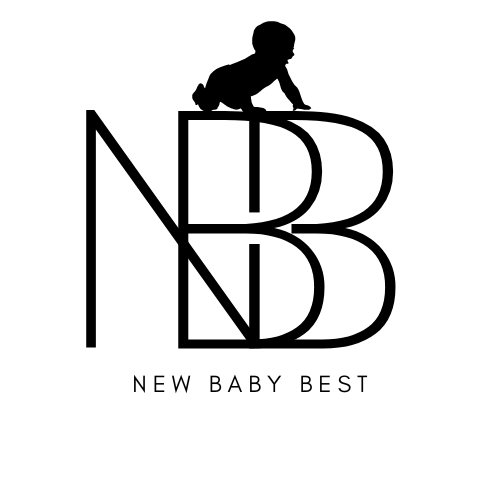Did you know that proper dental care for your baby should start even before their first tooth emerges? Yes, it’s true! Establishing good oral hygiene habits from the very beginning can set the foundation for a lifetime of healthy teeth. In this article, we will explore when you should start brushing your baby’s teeth, providing you with essential tips to ensure you give their little pearly whites the attention they deserve. So, grab your toothbrush and let’s dive into the world of infant dental care!
The Importance of Dental Care for Babies
Baby Teeth and Their Role
Baby teeth, also known as primary teeth, play a crucial role in a child’s overall oral health and development. Although they are temporary, they serve several important functions. Baby teeth help children chew properly, enabling them to obtain the necessary nutrients for growth and development. These teeth are also essential for speech development, as they play a vital role in the formation of sounds and words. Moreover, baby teeth act as placeholders for adult teeth, guiding them into their proper positions as they erupt.
The Risk of Dental Decay in Babies
Babies are not exempt from dental problems, and tooth decay can occur even before their first tooth emerges. This condition, known as early childhood caries or baby bottle tooth decay, can have detrimental effects on a child’s oral health. Baby bottle tooth decay is primarily caused by prolonged exposure to sugary liquids, such as milk, formula, juice, and sweetened drinks, particularly when a baby falls asleep with a bottle in their mouth. The sugars in these liquids combine with bacteria in the mouth to produce acids that attack the teeth, leading to tooth decay and cavities.
Preventing Tooth Decay
Preventing tooth decay in babies requires proactive dental care and a few simple lifestyle changes. It is crucial to establish good oral hygiene habits from an early age. By following a proper oral care routine and making smart dietary choices, you can protect your baby’s teeth from decay and set them up for a lifetime of optimal oral health.
Early Oral Care Habits
Wiping the Gums
Even before your baby’s first tooth appears, it is important to clean their gums regularly. After feeding, gently wipe your baby’s gums with a clean, damp cloth or specialized infant gum cleaner. This helps remove residue and bacteria, preventing the buildup of harmful substances that can damage emerging teeth.
Introducing a Toothbrush
Once your baby’s first tooth emerges, it is time to introduce a toothbrush. Look for a small, soft-bristled toothbrush specifically designed for infants. The brush should have a small head, suitable for fitting comfortably in your baby’s mouth.
Choosing the Right Toothpaste
When selecting toothpaste for your baby, it is crucial to choose a fluoride-free option until they are able to spit out the toothpaste effectively. Fluoride is beneficial for tooth enamel, but ingesting excessive amounts can lead to fluorosis, a condition that causes white spots on the teeth. Opt for a non-fluoridated toothpaste that is safe for babies and recommended by pediatric dentists.
When to Start Brushing
The Emergence of Baby Teeth
As mentioned earlier, you should start cleaning your baby’s gums even before their first tooth appears. However, once the first tooth emerges, it is the ideal time to begin brushing. This usually occurs around six months of age, but can vary from child to child. Consult with your pediatrician or pediatric dentist for personalized advice based on your baby’s development.
Consulting a Pediatric Dentist
To ensure you are on the right track with your baby’s oral care, it is vital to consult a pediatric dentist early on. A pediatric dentist specializes in the oral health needs of infants, children, and adolescents, providing expert guidance on preventative care, proper brushing techniques, and oral hygiene routines tailored to your baby’s specific needs. Regular visits to a pediatric dentist will help you stay informed and address any concerns or issues that may arise.
How to Brush Your Baby’s Teeth
Finding a Comfortable Position
To make brushing your baby’s teeth a positive experience, it is important to find a comfortable and secure position. You can cradle your baby’s head in your lap, supporting their chin, or stand behind them with their head tilted slightly backward. Experiment with different positions to find what works best for both you and your baby.
Using the Right Technique
When brushing your baby’s teeth, use gentle circular motions to clean all tooth surfaces, including the front, back, and chewing surfaces. Pay extra attention to the gumline, as it is where bacteria often accumulate. Remember to be gentle and avoid applying excessive pressure, as their gums are still tender and sensitive.
Making It a Pleasant Experience
It is important to make brushing your baby’s teeth a positive and enjoyable experience. Sing a song, engage in playful interaction, or use a fun toothbrush with vibrant colors or a character they admire. The key is to create a relaxed and happy atmosphere to associate toothbrushing with a pleasant routine rather than a chore.
What Toothbrush and Toothpaste to Use
Soft-Bristled Toothbrush
When selecting a toothbrush for your baby, opt for one with soft bristles. Hard bristles can be harsh on their delicate gums and might cause discomfort or irritation. Soft bristles effectively remove plaque and food particles without causing any harm.
Fluoride Toothpaste
Once your baby is capable of spitting out toothpaste effectively, you can begin using fluoride toothpaste. Fluoride helps strengthen tooth enamel and prevent tooth decay. However, make sure to use a minimal amount of toothpaste, about the size of a grain of rice, to avoid excessive fluoride intake.
Establishing a Brushing Routine
Frequency of Brushing
Brushing your baby’s teeth should become a regular part of their daily routine. Aim to brush their teeth twice a day, preferably in the morning and before bedtime. Forming these habits early on helps instill good oral hygiene practices that your child will carry into adulthood.
Involving Your Child
As your child grows, gradually involve them in the toothbrushing process. Let them hold their own toothbrush, practice brushing their teeth, and later contribute to the brushing efforts. This not only empowers your child but also encourages their active participation in maintaining their oral health.
Common Challenges and Solutions
Resistance to Brushing
It is not uncommon for babies to resist toothbrushing initially. They may become fussy, cry, or clench their mouths shut. To overcome this challenge, try to make toothbrushing a fun and engaging activity by using age-appropriate toothbrushes and toothpastes with appealing flavors or designs. You can also play their favorite music or involve them in choosing their oral care products. Patience, consistency, and a positive attitude go a long way in establishing a successful brushing routine.
Teething Issues
Teething can be a difficult time for both babies and parents. The discomfort and pain associated with teething might make it challenging to brush your baby’s teeth. To soothe their teething discomfort, provide appropriate teething toys or chilled teething rings. Massage their gums with a clean finger or a damp cloth to alleviate discomfort before attempting to brush their teeth.
Seeking Professional Help
If you are facing persistent challenges or have concerns about your baby’s oral health, do not hesitate to seek professional help. A pediatric dentist can offer specialized advice, identify and address any underlying issues, and provide solutions that cater to your baby’s specific needs.
Additional Tips for Oral Care
Avoiding Fluoride Supplements
While fluoride is beneficial for dental health, it is important to avoid giving your baby fluoride supplements without professional guidance. Excessive fluoride intake during infancy can lead to fluorosis, which may result in visible white spots or lines on developing adult teeth.
Encouraging Healthy Eating Habits
Maintaining a balanced diet is crucial for your baby’s oral health. Limit the consumption of sugary foods and drinks, especially between meals. Encourage healthy eating habits by offering nutritious snacks, such as fruits and vegetables, which can support healthy teeth and gums.
Regular Dental Check-ups
Regular dental check-ups are essential for your baby’s oral health and development. Schedule their first dental appointment within six months after their first tooth emerges or by their first birthday, whichever comes first. These routine check-ups allow the pediatric dentist to monitor your baby’s oral health, address any concerns, and provide professional dental care when necessary.
In conclusion, proper dental care for babies is of utmost importance. By following the recommended oral care habits, brushing techniques, and involving professional guidance when needed, parents can ensure their babies develop healthy teeth and gums. The early establishment of good oral hygiene practices sets the foundation for a lifetime of optimal oral health and well-being.

